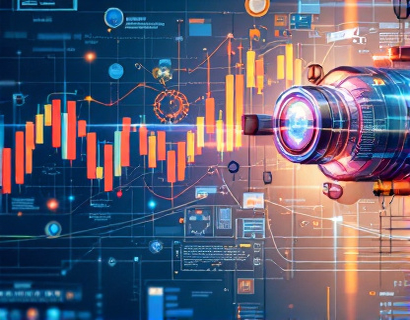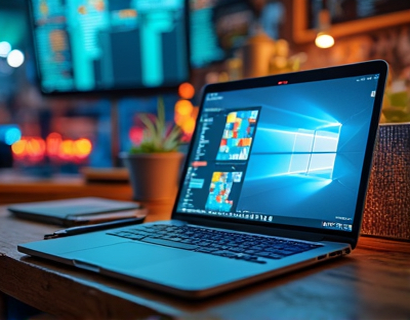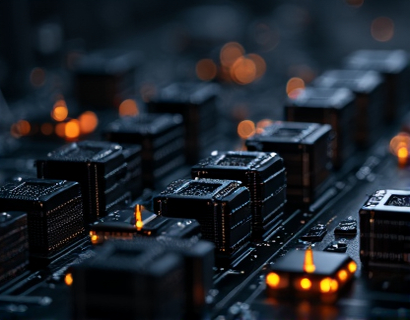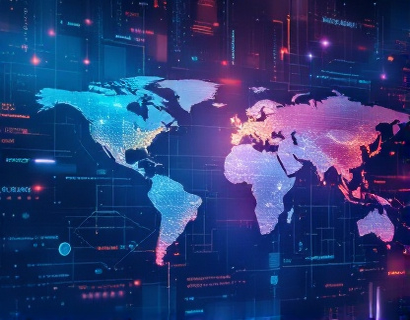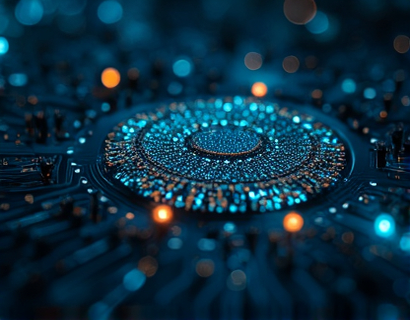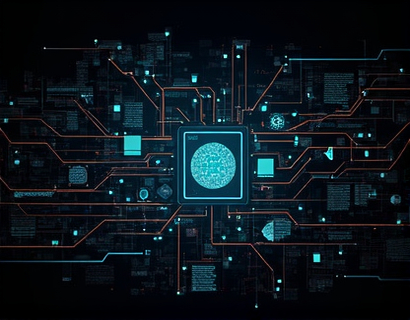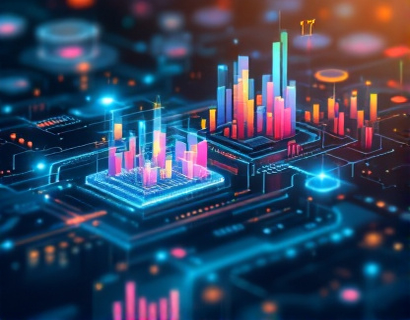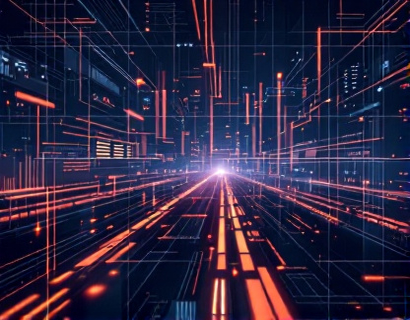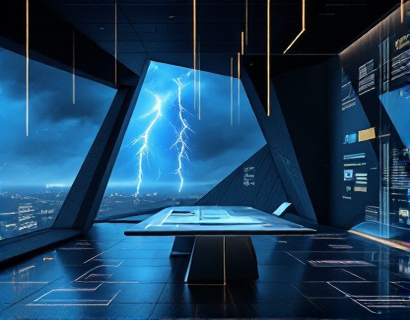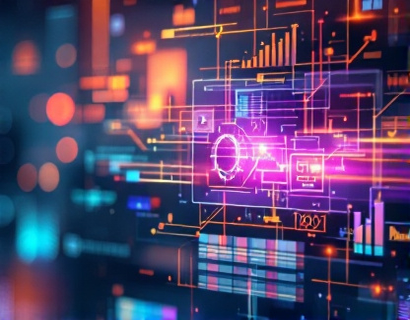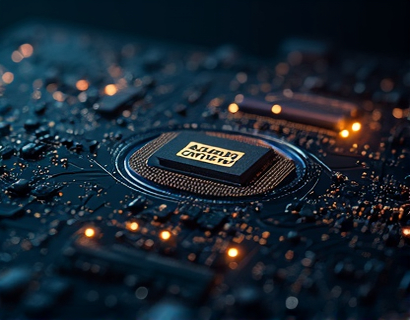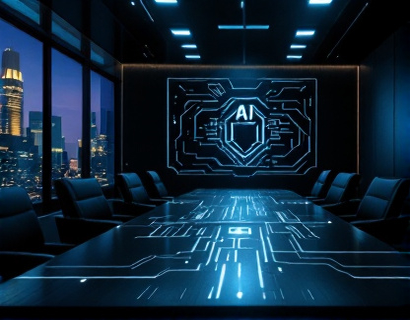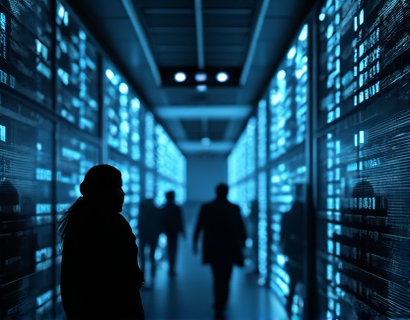Unlocking the Potential of Crypto and AI: Transforming Digital Experiences with Advanced Tech Solutions
The intersection of cryptocurrency and artificial intelligence (AI) represents a frontier of innovation that is rapidly reshaping the digital landscape. This fusion of technologies is not just about combining two powerful tools; it's about creating a synergy that enhances user experiences, drives efficiency, and opens up new possibilities for businesses and individuals alike. In this article, we will explore how the integration of crypto and AI is transforming digital solutions, and what this means for the future of technology.
The advent of blockchain technology has brought about a new era in digital transactions, offering transparency, security, and decentralization. Cryptocurrencies, built on blockchain, have revolutionized the way we think about money and value. However, the true potential of blockchain extends far beyond digital currencies. It provides a robust framework for creating decentralized applications (dApps) that can operate without the need for intermediaries. When AI is integrated into this ecosystem, the possibilities become even more profound.
Enhancing User Experiences with AI-Driven dApps
One of the most significant impacts of combining crypto and AI is the creation of advanced dApps that offer personalized and seamless user experiences. Traditional applications rely on centralized servers to process and store data, which can lead to latency and security vulnerabilities. In contrast, AI-driven dApps leverage the decentralized nature of blockchain to process data more efficiently and securely. This results in faster response times and a more reliable user experience.
For instance, AI algorithms can analyze user behavior and preferences in real-time, allowing dApps to provide tailored recommendations and services. This level of personalization is not only more engaging for users but also increases the utility of the application. In the realm of finance, AI-powered dApps can offer sophisticated trading strategies, risk management tools, and financial advice, all accessible through a user-friendly interface.
Smart Contracts and Automated Processes
Smart contracts, self-executing contracts with the terms directly written into code, are another critical component of the crypto and AI fusion. These contracts automatically enforce and execute agreements when predefined conditions are met, eliminating the need for intermediaries and reducing transaction costs. When combined with AI, smart contracts can become even more intelligent and adaptive.
AI can analyze vast amounts of data to predict outcomes and optimize contract terms in real-time. For example, in supply chain management, AI can monitor various factors such as inventory levels, shipping times, and demand forecasts, and adjust smart contracts accordingly to ensure smooth operations. This level of automation not only increases efficiency but also reduces the potential for human error.
Decentralized Data Marketplaces
The integration of crypto and AI is also transforming how data is bought, sold, and used. Decentralized data marketplaces, powered by blockchain, allow individuals and organizations to monetize their data while maintaining control over it. AI plays a crucial role in these marketplaces by enabling the analysis and valuation of data, ensuring that it is accurately priced and relevant to buyers.
These marketplaces can create new revenue streams for data providers, from individuals sharing personal data to businesses offering insights from their operations. AI algorithms can match data suppliers with buyers based on compatibility and value, streamlining the process and increasing market efficiency. This democratization of data access can lead to more informed decision-making across various industries.
Enhancing Cybersecurity with AI and Crypto
Security is a paramount concern in the digital age, and the combination of crypto and AI offers robust solutions to protect against cyber threats. Blockchain's inherent security features, such as cryptographic hashing and consensus mechanisms, provide a strong foundation. AI enhances this by enabling real-time threat detection and response.
AI-powered security systems can analyze patterns and anomalies in network traffic to identify potential threats before they become incidents. Machine learning algorithms can adapt to new threats, improving the system's ability to defend against attacks. Additionally, cryptographic techniques can ensure that sensitive data remains secure and private, even when processed by AI systems.
Innovative Business Models
The synergy between crypto and AI is not only about enhancing existing processes but also about creating entirely new business models. Tokenization, for example, allows for the representation of assets as digital tokens on a blockchain. When AI is applied to tokenized assets, it can optimize their management and trading.
In the real estate sector, AI-driven platforms can assess property values, predict market trends, and automate the buying and selling process using smart contracts. This not only makes real estate transactions more efficient but also opens up investment opportunities through fractional ownership of properties, accessible to a broader audience via tokens.
Challenges and Considerations
While the potential of combining crypto and AI is vast, there are several challenges that need to be addressed. Regulatory uncertainty remains a significant hurdle, as governments worldwide are still grappling with how to regulate these emerging technologies. Ensuring compliance while fostering innovation is a delicate balance that requires collaboration between stakeholders.
Another challenge is the technical complexity involved in integrating AI with blockchain systems. Developers need to possess a deep understanding of both technologies to create robust and scalable solutions. Additionally, there is a need for standardization to ensure interoperability between different platforms and applications.
Future Prospects
Looking ahead, the future of crypto and AI is bright, with numerous exciting developments on the horizon. The continued advancement of AI, particularly in areas like natural language processing and computer vision, will further enhance the capabilities of dApps and smart contracts. The rise of quantum computing could also impact blockchain security, prompting the development of quantum-resistant algorithms.
Moreover, the increasing adoption of 5G and IoT technologies will create a wealth of data that AI can process and analyze, leading to more intelligent and connected systems. The convergence of these technologies will not only transform digital experiences but also drive innovation in sectors such as healthcare, finance, and education.
In conclusion, the fusion of cryptocurrency and AI is unlocking new possibilities for digital transformation. By enhancing user experiences, automating processes, creating decentralized marketplaces, and improving cybersecurity, this synergy is redefining the future of technology. As the ecosystem continues to evolve, it will be crucial for innovators, businesses, and policymakers to collaborate and navigate the challenges ahead, ensuring that the benefits of these advanced tech solutions are realized by all.



